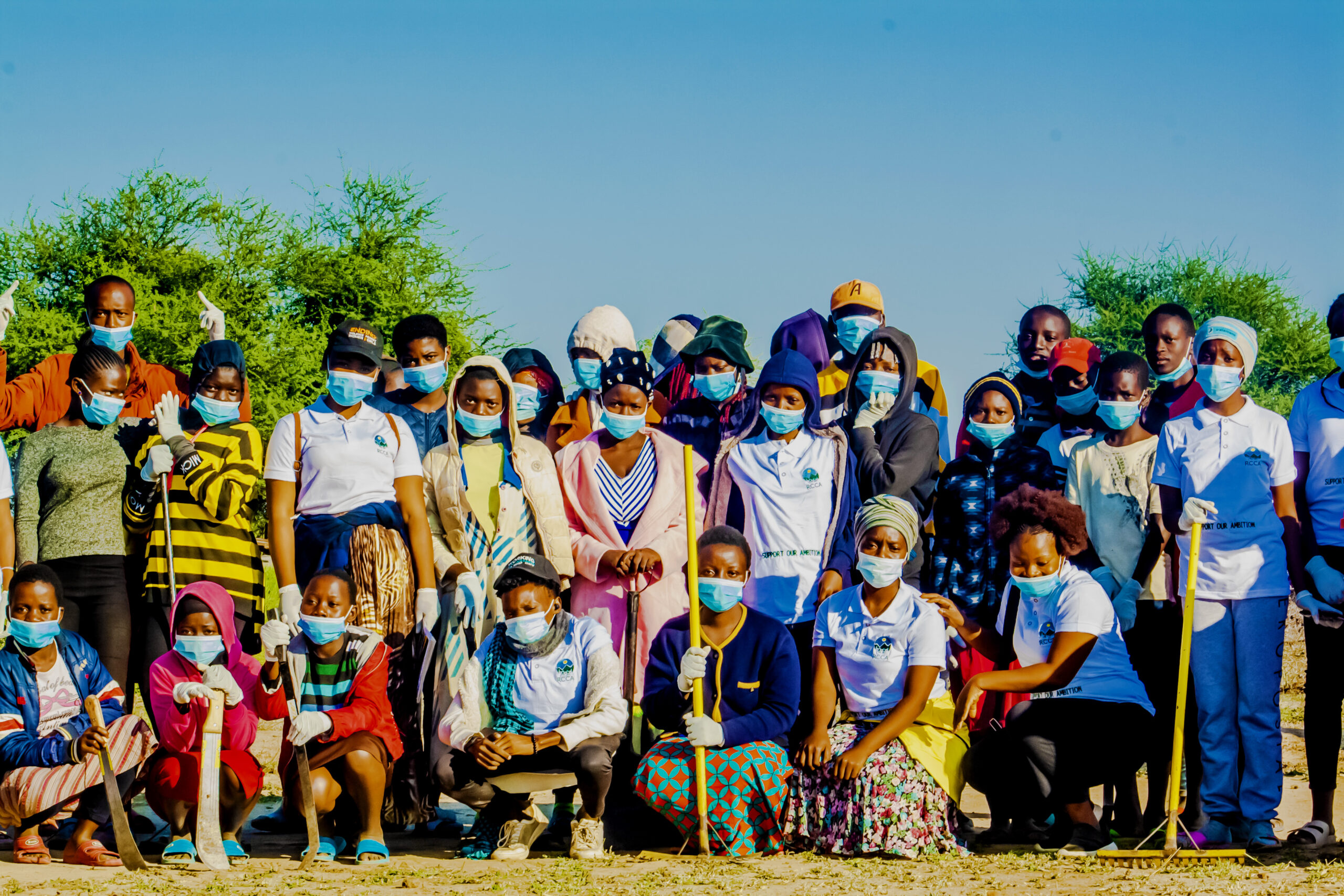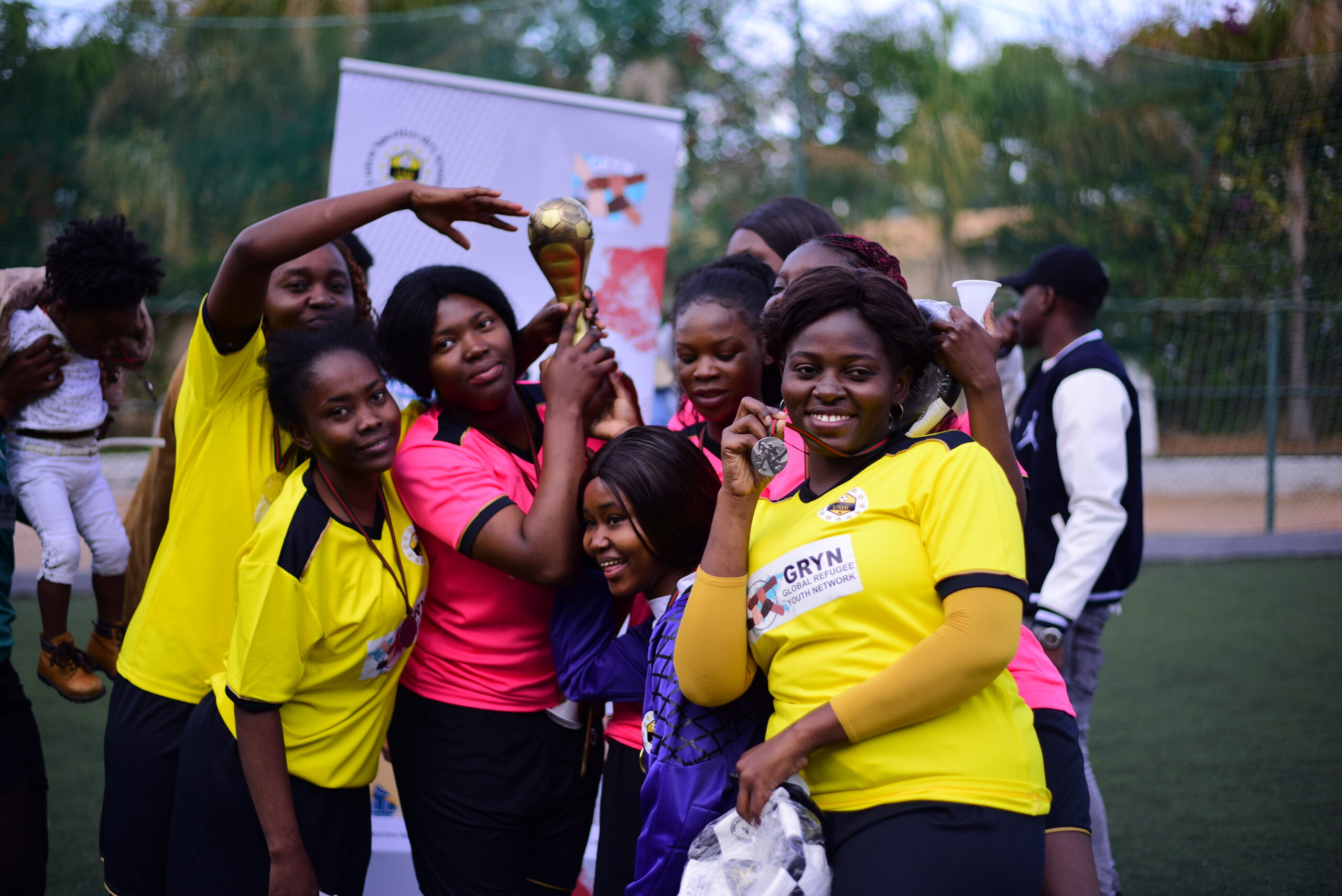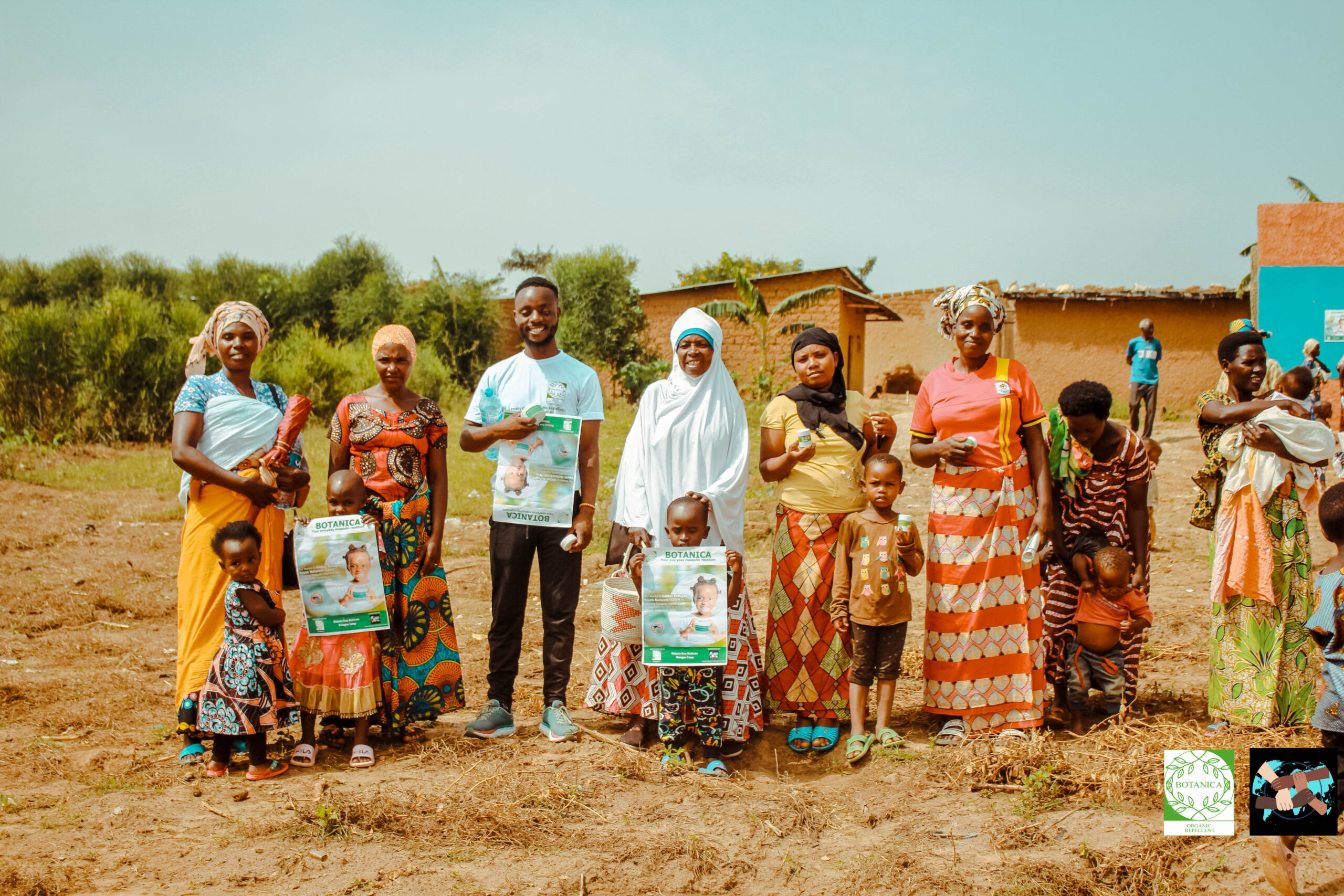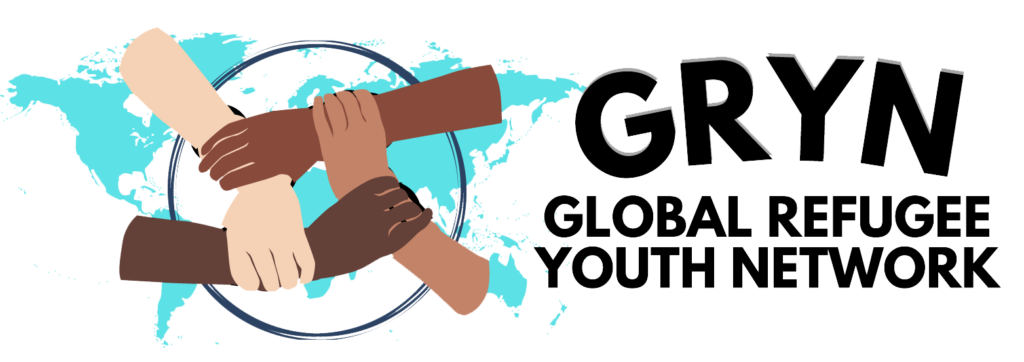
This is GRYN
work that supports youth development
As the saying goes, “nothing for youth without the youth”. This was certainly true when GRYN worked with youth groups and youth leaders to have their projects and initiatives in their communities supported. At the end of 2021, the Team at the Global Refugee Youth Network – GRYN worked with youth groups, those registered and those not registered when they launched the first call for youth project proposals. The call was for modest but remarkable funding between $500 to $5,000 to over 22 youth groups
that reached about 1,700 people in the refugees’ settlements and towns where refugees are based.
The Team at GRYN made sure the support is not only funding but a holistic support from the ideation stage to the project execution and implementation. Before the call for project proposals was shared, GRYN organized a capacity building workshop where refugee youth were trained on project planning and design, project execution to close. The youth were supported with a series of information sessions during the period of application. The information sessions were in three different languages to ensure diversity among the youth groups applying and also to cater for the variation in the languages spoken by the refugees in the different regions. The results of these collaborations were amazing as reported by the youth project managers that were supported.
It is important to know that many of the youth initiatives faced almost the same challenges with legal recognition and funding but have varying and differing goals, challenges they feel are important to them and their communities. It is also worth noting that their capacity needs and supports are not also uniform. Some required a small push while others needed a long and sustained support to put their ideas into live. Some groups have access to information online and were able to mobilize to put their project proposals together while others needed to have the information sessions to have some of the ideas on paper.
It is therefore important to note that co-creations and information sessions that help the groups to identify the challenges in their communities and who to partner with as they plan their projects are very important. It will be a mistake to think of all the groups as though they are at the same stage of growth and organization

In Malawi, one refugee youth group was able to get a permanent address or offices for their organizations in Dzaleka refugee settlements. The Youth were able to build their own office space and stop renting spaces in the refugee settlement in order to keep training youth in the settlement in ICT and job search online.
Youth needs might not be the same and are in most cases dictated by the location of the settlements or within the same country, there might be different needs for the refugees in Urban settings and those in the refugee settlement. For example, on the need for languages, in Kenya, it was English and Swahili while in the Arab Republic of Egypt, it was Arabic and English that the refugees there felt would be needed by their own communities
In South Africa, refugee youth were able to create spaces for interaction between refugee youth and the host communities for example. These spaces were used for discussions and dialogues on xenophobia, racism and other challenges affecting the host communities and refugees in the country.
It is therefore important to note that co-creations and information sessions that help the groups to identify the challenges in their communities and who to partner with as they plan their projects are very important. It will be a mistake to think of all the groups as though they are at the same stage of growth and organization.
Also, this comes down to the reporting and the level of organization that is shown by the groups when reporting. Much as all can show a high degree of transparency and openness due to the relationship that is built with the funding agent, some of the youth groups might not be able to report at the same level of maturity as the others. They might also need some support to capture their learnings and what they implemented and how it might be useful to other groups outside their zone.


It is therefore important to note that co-creations and information sessions that help the groups to identify the challenges in their communities and who to partner with as they plan their projects are very important. It will be a mistake to think of all the groups as though they are at the same stage of growth and organization.
Also, this comes down to the reporting and the level of organization that is shown by the groups when reporting. Much as all can show a high degree of transparency and openness due to the relationship that is built with the funding agent, some of the youth groups might not be able to report at the same level of maturity as the others. They might also need some support to capture their learnings and what they implemented and how it might be useful to other groups outside their zone.
Similarly, it is worth noting that some groups got support from the hosting governments and international organizations working in their settlements. This is prominent in the refugee settlements and those in urban settings. Some groups got sustained partnerships with NGOs and refugee regimes in their areas to continue with these processes. For example, in Tongogara refugee settlement, The Refugee Child Coalition on climate action was able to get a donation of over 200 seedlings from the office of the camp commandant and the United Nations High Commissioner for Refugees office in their settlement. These trees will be distributed and monitored by the team in the refugee settlement.
In Morocco, Group De Jeunes was able to work with the local football clubs that recruited 8 of the refugee players into the national league. These players will train for 1 year and possibly get papers to play in the Moroccan national league. IN Kenya, the Naweza Team attracted the attention of the local Kenya football scout that watched the matches as some of the players for trials at the national league clubs.

In terms of challenges, we did experience and face some notable challenges from funding the groups. From the challenges with transfer where some groups could not receive their funding via western Union because of the policies in the local areas, to delayed reporting and poor connectivity that hampered communications. n conclusion, we would like to share two ideas for those who would love to work with refugee youth groups in the future. First, there is a need for organizational flexibility, larger organizations should give away power and work with the youth groups or leaders as equal partners and get advice on different strategies one can use.
This will not only give youth the confidence to lead and be creative, it can be an opportunity for the larger organizations to learn from the youth ideas and their actions in the field.
Second, understand the reality of the groups you are working with and be patient with them at some given time. Since development take time. When you know the needs of the youth group you are working with, it will be easy for you to tailor your support in line with their needs and priority.
